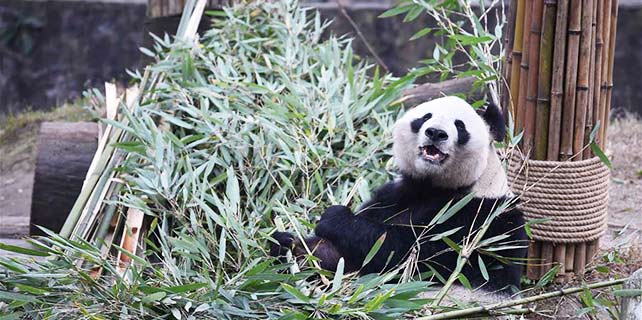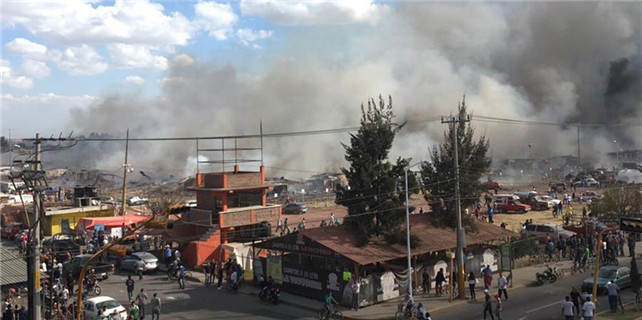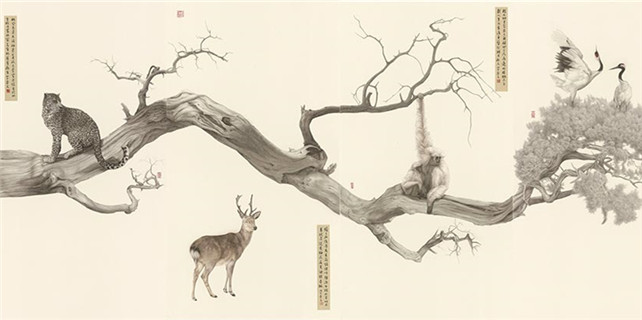The Year: China's Diplomacy
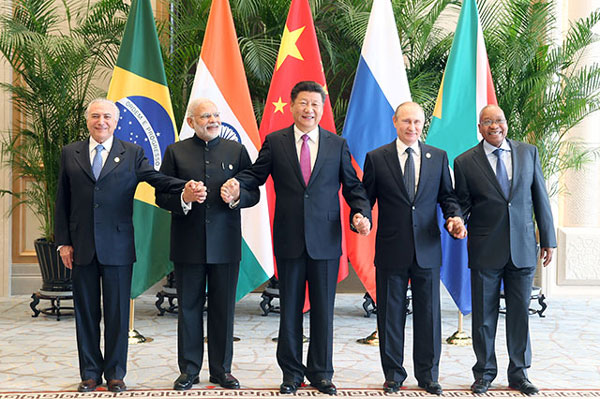 |
|
Chinese President Xi Jinping (C) takes a group photo with Indian Prime Minister Narendra Modi (2nd L), Brazil's President Michel Temer (L), Russian President Vladimir Putin (2nd R) and South Africa's President Jacob Zuma at the West Lake State Guest House ahead of G20 Summit in Hangzhou, Zhejiang province, China, September 4, 2016. [Photo/Xinhua] |
This week we are presenting a year-end review of the global economy, China's economy, society and diplomacy, and the international situation. Today four researchers review China's diplomacy and give their outlooks for 2017.
World Leadership | What is China's role in global governance?
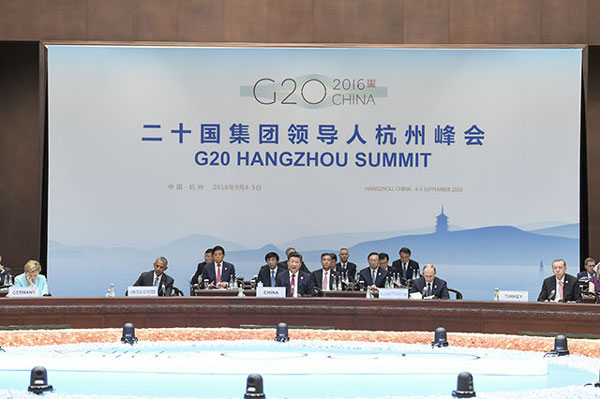 |
|
Chinese President Xi Jinping presides over the opening ceremony of the Group of 20 (G20) summit in Hangzhou, capital of east China's Zhejiang Province, Sept 4, 2016. [Photo/Xinhua] |
With global governance struggling to deal with increasingly thorny issues, such as Brexit and the sluggish global economic recovery, globalization has been in retreat this year. Given this fact, China's intensified efforts to engage in global governance seem like a silver lining.
The successful G20 Leaders Summit in Hangzhou, East China's Zhejiang province, in September added weight to the multinational bloc's legitimacy as the premier forum on international economic cooperation. Following the summit, China's top leader Xi Jinping called for closer cooperation to reform the global governance system, and advance peace and development in the world.
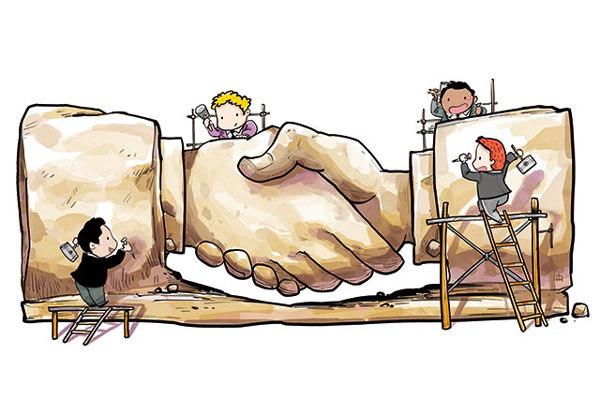
Belt And Road | Will initiative help build a fairer world order?
In the three years since Chinese President Xi Jinping proposed it, the Belt and Road Initiative (the Silk Road Economic Belt and 21st Century Maritime Silk Road) has attracted many countries aspiring for true win-win cooperation, as opposed to the West-centric globalization.
The rise of trade protectionism in some Western countries has cast a shadow over the already weakening global economic growth. The Beijing-led initiative, however, is gaining fresh support to serve as an apt alternative and cover areas long neglected by the West-centric globalization and help embattled economies tide over the continuing fallout of the global financial crisis.
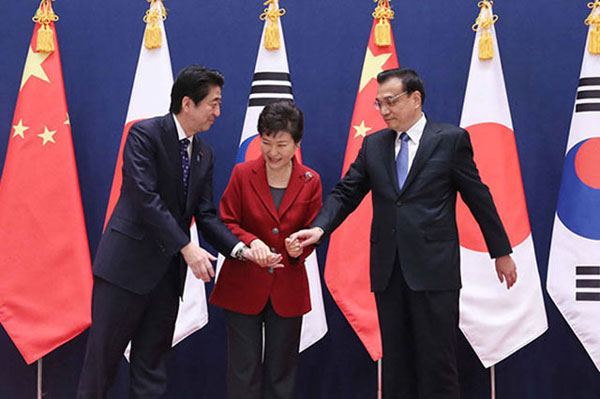 |
|
Chinese Premier Li Keqiang (R), Japanese Prime Minister Shinzo Abe (L) and South Korean President Park Geun-hye attend the sixth China-Japan-South Korea leaders' meeting in Seoul, Nov 1, 2015. [Photo/Xinhua] |
Regional Affairs | Why is Northeast Asia fraught with uncertainties?
For China-Japan-Republic of Korea relations, arguably the most important trilateral relationship in the region, this year has not been good. The recent impeachment of ROK President Park Geun-hye, besides dealing a heavy blow to her political career, has delayed the trilateral leadership meeting that was originally scheduled for the end of 2016.
Things started getting more complicated after Seoul allowed Washington to deploy the Terminal High Altitude Area Defense anti-missile system on the ROK soil, which Beijing is vehemently opposed to. While Seoul's decision on THAAD has further strained China-ROK ties, the ongoing political drama in the ROK is not at all conducive to rebuilding trust among the three neighbors.
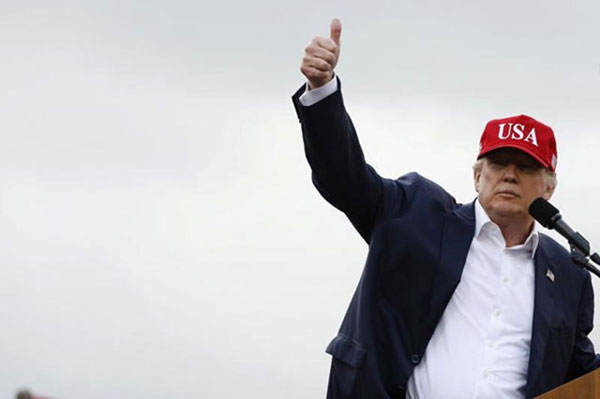 |
|
US President-elect Donald Trump gestures as he speaks during a USA Thank You Tour event in Mobile, Alabama, US, December 17, 2016. [Photo/Agencies] |
Sino-US Ties | What more to expect with Trump in office?
The gap between China and the United States in terms of national strength and international influence has further narrowed this year. China's interactions with the US on the regional security and economic orders, combined with its political stability and relatively decent economic growth, speak volumes about Beijing's proposal at major events such as the G20 Leaders Summit in Hangzhou, East China's Zhejiang province, to build an inclusive global order. And given the increasing number of economies recognizing the importance of China's proposal and Beijing's enhanced leadership capability, Sino-US ties are moving toward a more balanced state.
On its part, the US has a long way to go to address the deep divisions at home exposed by Donald Trump's election as the next president. The US' attempts to contain the rise of China, epitomized by the Trans-Pacific Partnership Agreement that Trump has vowed to scrap on his first day in office, have been futile and discarded by most regional powers.
- China denies 'money diplomacy' with Sao Tome and Principe
- Some lessons in diplomacy would benefit Trump
- China's diplomacy more proactive, confident and mature: Foreign minister
- Duterte's unorthodox style shows pragmatic diplomacy
- Premier Li's tour to America Day 6: 'Ice hockey diplomacy' strengthens China-Canada friendship
- Son brings charm to diplomacy







